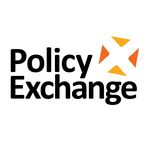Rethinking Brexit: A New Lens on Trade Dynamics
March 20, 2025, 5:16 pm

Location: United Kingdom, England, London
Employees: 11-50
Founded date: 2010
The Brexit debate has lingered like a stubborn fog. It clouds conversations, stirs emotions, and shapes policies. Yet, recent insights suggest it might be time to clear the air. The Office for Budget Responsibility (OBR) has long been the oracle of economic forecasts. Its predictions about Brexit's impact on UK-EU trade have painted a bleak picture. But what if those forecasts are more shadow than substance?
Former Chancellor Jeremy Hunt has stepped into the fray, challenging the OBR's gloomy assessments. He argues that the economic fallout from Brexit is not as dire as previously thought. This assertion comes in the foreword of a report by the Policy Exchange think tank. Hunt's message is clear: the models used to gauge Brexit's impact are flawed. They may have exaggerated the consequences, leading to misguided policies.
The OBR has claimed that Brexit stifled growth and decimated trade. It reported a staggering 28% drop in UK vehicle exports since 2023. But the Policy Exchange report counters this narrative. It suggests that the OBR's analysis is too narrow. It failed to consider the value of exports, not just their volume. When adjusted for real terms, the decline is a mere 2%. This revelation is like finding a silver lining in a storm cloud.
The report also criticizes the OBR for relying on volatile data. It argues that the OBR's assumptions could mislead policymakers, including Chancellor Rachel Reeves. These forecasts shape decisions on taxation and spending. If the foundation is shaky, the entire structure of economic policy could crumble.
Hunt's comments resonate in a broader context. The UK is at a crossroads. The government is attempting to reset its trading relationship with the EU. This effort requires a clear understanding of how trade has evolved since Brexit. While many are weary of the Brexit debate, it remains crucial to analyze its implications.
The foreign secretary is set to address an international trade conference. The goal is to explore ways to enhance UK-EU trade. This is a sensible approach, but it hinges on accurate data. Without it, discussions become mere exercises in futility.
Critics of the OBR's predictions often come from a vocal minority. They paint a picture of catastrophic trade collapse. Yet, a closer examination reveals a more nuanced reality. Yes, there are frictions, but the overall landscape is not as bleak as some portray.
The Policy Exchange report serves as a beacon of clarity. It urges a more comprehensive view of trade dynamics. It highlights that the UK faced challenges in EU markets even before Brexit. This context is essential for understanding the current situation.
Hunt's call to avoid relitigating Brexit is noteworthy. The political instability that followed the referendum has taken its toll. Businesses and the public are fatigued. They seek stability, not more turmoil. The focus should shift from past grievances to future opportunities.
Prime Minister Keir Starmer has embraced this philosophy. He aims for a rapprochement with the EU. His recent participation in an EU Leaders’ meeting marks a significant step. It signals a willingness to engage constructively. This approach could foster positive relationships with both the US and the EU.
The path forward is not without challenges. The UK must navigate a complex web of trade relationships. The goal is to strike a balance that benefits all parties involved. This requires a commitment to understanding the intricacies of trade data.
In conclusion, the Brexit narrative is evolving. The OBR's predictions may not be the final word. As new analyses emerge, they challenge established beliefs. The Policy Exchange report offers a fresh perspective. It encourages a reevaluation of the impact of Brexit on trade.
The fog may be lifting. A clearer view of the landscape is emerging. It’s time to embrace this clarity. The future of UK-EU trade depends on it.
Former Chancellor Jeremy Hunt has stepped into the fray, challenging the OBR's gloomy assessments. He argues that the economic fallout from Brexit is not as dire as previously thought. This assertion comes in the foreword of a report by the Policy Exchange think tank. Hunt's message is clear: the models used to gauge Brexit's impact are flawed. They may have exaggerated the consequences, leading to misguided policies.
The OBR has claimed that Brexit stifled growth and decimated trade. It reported a staggering 28% drop in UK vehicle exports since 2023. But the Policy Exchange report counters this narrative. It suggests that the OBR's analysis is too narrow. It failed to consider the value of exports, not just their volume. When adjusted for real terms, the decline is a mere 2%. This revelation is like finding a silver lining in a storm cloud.
The report also criticizes the OBR for relying on volatile data. It argues that the OBR's assumptions could mislead policymakers, including Chancellor Rachel Reeves. These forecasts shape decisions on taxation and spending. If the foundation is shaky, the entire structure of economic policy could crumble.
Hunt's comments resonate in a broader context. The UK is at a crossroads. The government is attempting to reset its trading relationship with the EU. This effort requires a clear understanding of how trade has evolved since Brexit. While many are weary of the Brexit debate, it remains crucial to analyze its implications.
The foreign secretary is set to address an international trade conference. The goal is to explore ways to enhance UK-EU trade. This is a sensible approach, but it hinges on accurate data. Without it, discussions become mere exercises in futility.
Critics of the OBR's predictions often come from a vocal minority. They paint a picture of catastrophic trade collapse. Yet, a closer examination reveals a more nuanced reality. Yes, there are frictions, but the overall landscape is not as bleak as some portray.
The Policy Exchange report serves as a beacon of clarity. It urges a more comprehensive view of trade dynamics. It highlights that the UK faced challenges in EU markets even before Brexit. This context is essential for understanding the current situation.
Hunt's call to avoid relitigating Brexit is noteworthy. The political instability that followed the referendum has taken its toll. Businesses and the public are fatigued. They seek stability, not more turmoil. The focus should shift from past grievances to future opportunities.
Prime Minister Keir Starmer has embraced this philosophy. He aims for a rapprochement with the EU. His recent participation in an EU Leaders’ meeting marks a significant step. It signals a willingness to engage constructively. This approach could foster positive relationships with both the US and the EU.
The path forward is not without challenges. The UK must navigate a complex web of trade relationships. The goal is to strike a balance that benefits all parties involved. This requires a commitment to understanding the intricacies of trade data.
In conclusion, the Brexit narrative is evolving. The OBR's predictions may not be the final word. As new analyses emerge, they challenge established beliefs. The Policy Exchange report offers a fresh perspective. It encourages a reevaluation of the impact of Brexit on trade.
The fog may be lifting. A clearer view of the landscape is emerging. It’s time to embrace this clarity. The future of UK-EU trade depends on it.
